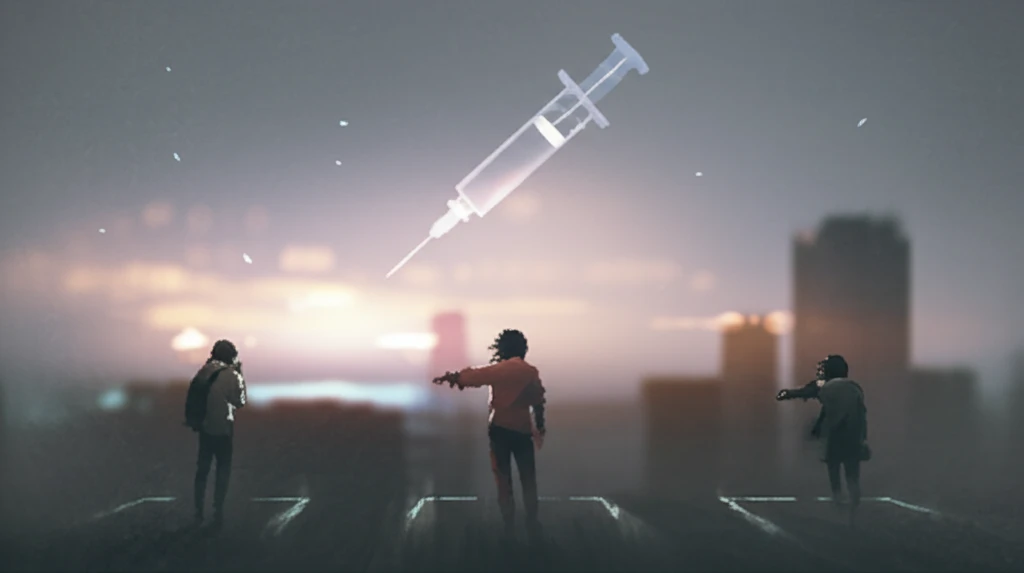
When Will It End? How Expectations of Vaccine Arrival Shape Our Pandemic Behavior
"Discover how anticipating a vaccine affects social distancing and what this means for future public health strategies."
During a pandemic, the uncertainty can feel overwhelming. Every decision, from going to the grocery store to attending a small gathering, feels fraught with risk. One of the biggest factors influencing our behavior is the hope of a vaccine. But how does this expectation actually change what we do?
A groundbreaking new study dives deep into this question, exploring how our anticipation of when a vaccine might arrive impacts our willingness to engage in social distancing. The findings offer valuable insights into how public health officials can better communicate and manage future health crises.
The research uses complex mathematical models to simulate individual decision-making during an epidemic, focusing on the critical role of vaccine expectations. Let's break down the key findings and what they mean for you and the broader community.
The Psychology of a Pandemic: How Vaccine Expectations Drive Social Distancing

The study centers around the idea that people make rational choices to minimize their risk of infection while balancing the economic and social costs of staying away from others. This balance is significantly affected by when people expect a vaccine to become available.
- Early Arrival, Strong Action: The sooner a vaccine is expected, the more people are inclined to practice rigorous social distancing.
- Timing is Everything: Social distancing efforts are most effective when the vaccine is anticipated to arrive before the epidemic runs its natural course.
- Uncertainty Matters: The degree of certainty around vaccine timing also plays a crucial role. A more definite timeline leads to more decisive action.
What Does This Mean for Future Pandemics?
This study delivers important advice for governments and health officals on managing epidemics. It emphasizes being transparent about vaccine development schedules and trying to accelerate vaccine rollouts to limit misinformation and keep the public involved. When people know what to expect, they are more likely to commit to social distancing and other preventative actions, which can significantly reduce the disease's effect.
